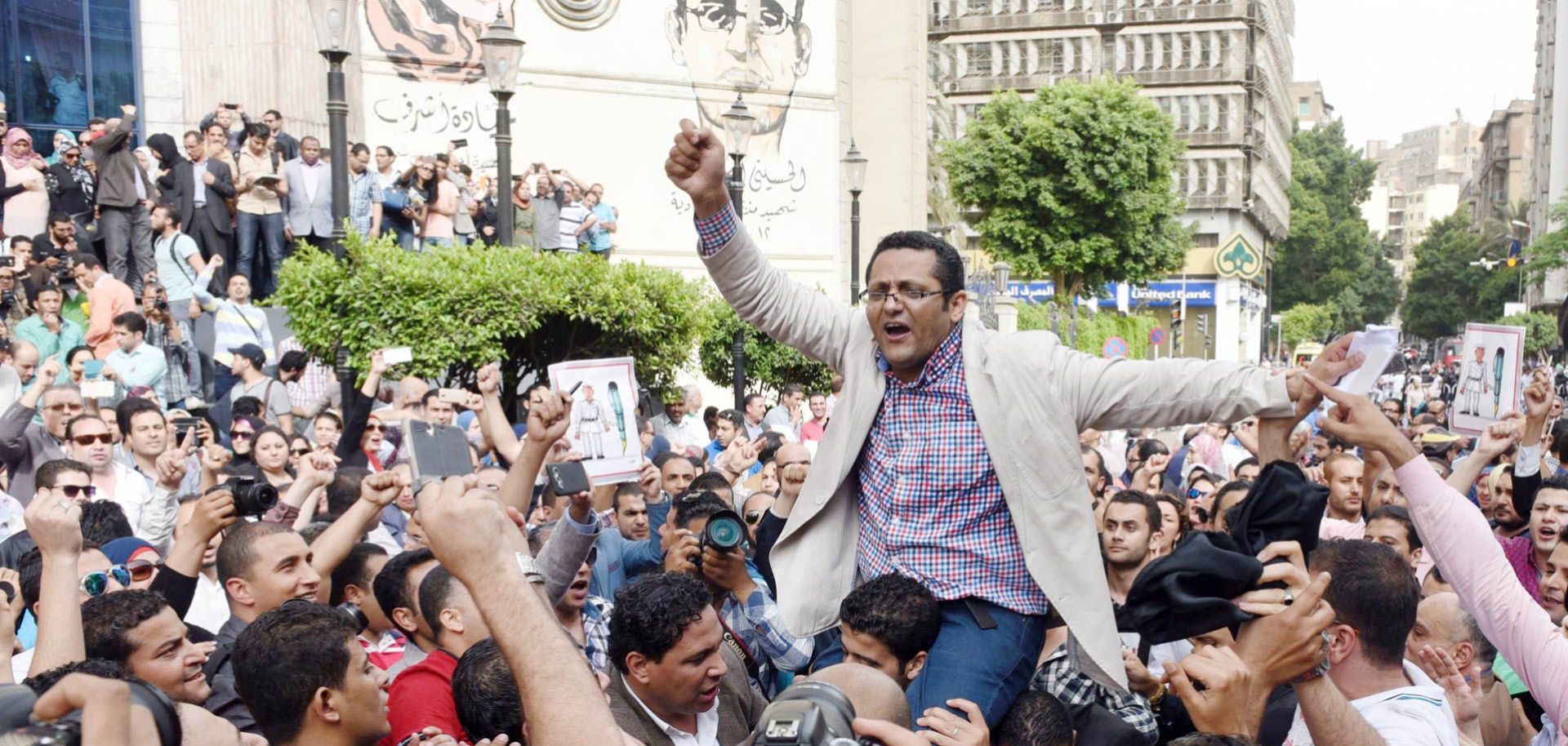ASSESSMENTS
Egypt: The Boundaries of Acceptable Dissent
May 5, 2016 | 20:43 GMT

(MOHAMED EL-SHAHED/AFP/Getty Images)
Summary
One of the most powerful mechanisms of control the Egyptian government has at its disposal — the press — is pushing back. Weeks of protests became even tenser this weekend when two journalists were arrested during a raid on the national press syndicate headquarters in Cairo, sparking a larger debate over how much government interference the Egyptian media should tolerate.
Cairo, of course, is as firmly in control of the country’s security today as it was before the weekend protests. Still, the treatment of the press has emboldened the opposition. After the Arab Spring of 2011, the government tightly controlled the flow of information, but now, as the press pushes back, the boundaries of acceptable dissent could expand some — especially since Cairo is still focused on its depressed economy and on security issues throughout the country.
Subscribe Now
SubscribeAlready have an account?
